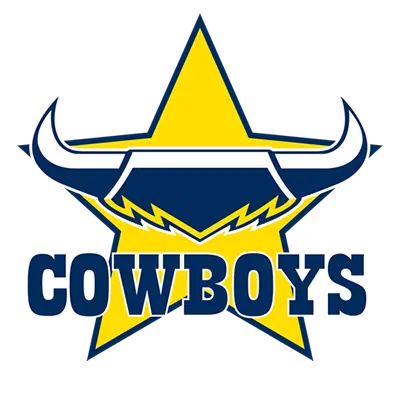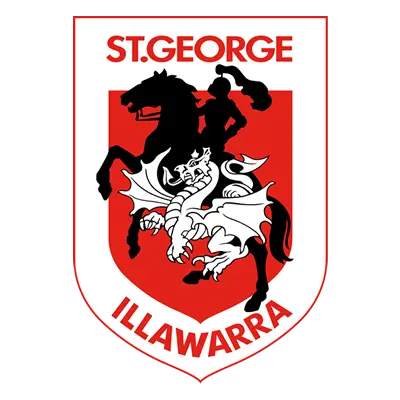Kevin Rudd
- Thread starter clontaago
- Start date
You are using an out of date browser. It may not display this or other websites correctly.
You should upgrade or use an alternative browser.
You should upgrade or use an alternative browser.
clontaago
First Grader
Labor wanted the troops there as well. But Labor just want to change there stance on the issue when it suits them :naughty:
Just like climate change hey Byso?
Fluffy
Journey Man
no byso, not when he keeps increasing debt
The Current Account Deficit
"I can promise you that we will follow policies which will, over a period of time, bring down the foreign debt . . . our first priority in Government economically will be to tackle the current account deficit."
John Howard, Doorstop interview, Debt Truck Launch, 20 September 1995
The Truth:
Foreign debt was $361 billion at the end of September 2003, an increase of 90 per cent on the September 1995 level. The account deficit was $11.9 billion at the end of September 2003, an increase of 112.5 per cent on the September 1995 level.
Australian Bureau of Statistics, ABS@, Time Series Spreadsheets (Balance of Payments and Investment Position, Australia 5302.0, Reserve Bank of Australia (H) Bulletin, Current Account)
The Current Account Deficit
"I can promise you that we will follow policies which will, over a period of time, bring down the foreign debt . . . our first priority in Government economically will be to tackle the current account deficit."
John Howard, Doorstop interview, Debt Truck Launch, 20 September 1995
The Truth:
Foreign debt was $361 billion at the end of September 2003, an increase of 90 per cent on the September 1995 level. The account deficit was $11.9 billion at the end of September 2003, an increase of 112.5 per cent on the September 1995 level.
Australian Bureau of Statistics, ABS@, Time Series Spreadsheets (Balance of Payments and Investment Position, Australia 5302.0, Reserve Bank of Australia (H) Bulletin, Current Account)
Labor wanted the troops there as well. But Labor just want to change there stance on the issue when it suits them :naughty:
Absolutely they didn't. Crean's line at the time was: "We support you, but don't think you should be going."
Criticise the ALP all you want, but this is one of the few policies they have had for a long time.
G
Guest
Guest
Does anybody really think that Rudd should be PM? Why not give Gough Whitlam another go? Rudd has about as much credability.
Thursday, 15 February 2007
In today's The Australian, respected foreign affairs writer Greg Sheridan examines the parliamentary week and concludes that Kevin Rudd's tendency to try to be all things to all people raises serious concerns about his judgment. As Sheridan wrote:
When ABC Radio on Tuesday asked Rudd what he thought the consequences of a troop withdrawal would be, Rudd responded: "I am not in the business of providing a rolling external commentary."
This was without question the single dumbest comment Rudd has made since becoming leader. If you are proposing a big policy shift - troop withdrawal - you must have a ready answer to the consequences of the policy shift.
The elite media have misinterpreted what might be called the Barack Obama week of Australian politics. This has been a good week for John Howard and a very troubling week for Kevin Rudd.
Consider last week's episode of The West Wing. The Democratic presidential candidate, a reserve air force pilot and good guy (Jimmy Smits), gets hammered by the Republican, an oleaginous, ageing draft-dodger (Alan Alda) on a national security issue. Smits's chief of staff keeps telling him that when the conversation is national security, you lose, no matter what.
The week began with an unusually vigorous attack by Howard on the position of the junior US senator from Illinois, Obama, that the US should withdraw its troops from Iraq. By saying that al-Qa'ida would be praying for an Obama win, Howard was in substance correct, but needlessly undiplomatic.
However, the consequences are not great. There will be five minutes of annoyance by congressional Democrats with Howard and then the whole thing will be forgotten.
In the very unlikely event that Obama becomes president and the equally unlikely event that Howard is still Prime Minister, some months later, say mid-2009, the two men will smile, grip, embrace and praise each other with all the customary enthusiasm. In the meantime, the Bush administration was very happy with Howard's remarks.
But that is foreign policy.
The domestic politics are altogether different. My colleague Matt Price rightly described Wednesday as Howard's best question time since Rudd has been ALP leader.
By the end of the week Howard had produced results that in their way are quite devastating for Rudd. According to the Nine network, 130,000 viewers responded yes to the question "Should Howard have criticised Obama?", while only 20,000 said no.
This is one of the most remarkable results you could ever see and is confirmed by a similar (though less lopsided) result in a Sky News poll. What this reflects, I suspect, is that Howard had contrived for himself the chance to have a vigorous argument with a powerful American without damaging the alliance.
It's forgotten now but this used to be the pattern. In the 1980s Australian foreign policy doctrine held that the alliance was not mixed with trade. Thus, Australian prime ministers - Bob Hawke in particular - could snuggle up warm and close to the Americans on the alliance but blast them for being beastly to our sheep, not loving our wheat and so on.
In recent years US trade policy has not harmed Australia. We have a free trade agreement with them. So, for the first time since George W. Bush became president, Howard had the luxury of a stoush with a high-profile Yank.
When Labor criticised Howard for this, the headline in Sydney's The Daily Telegraph the next day was "Conga line of hypocrites", an absolute dream reaction for Howard, which demonstrates that the Latham legacy still haunts Labor. This whole week can be seen as Howard spending a few dollars from his foreign policy piggy bank to produce a series of beneficial domestic outcomes.
First, climate change completely disappeared. As Graham Richardson once remarked, momentum in politics is the hardest thing to generate, or to stop. The Government stopped Labor's momentum.
Second, Howard managed to introduce doubt about Rudd's character. Howard has a very strong point on substance. If you favour pulling coalition troops out of Iraq, you must say what you think the consequences of this would be. When ABC radio on Tuesday asked Rudd what he thought the consequences of a troop withdrawal would be, Rudd responded: "I am not in the business of providing a rolling external commentary."
This was without question the single dumbest comment Rudd has made since becoming leader. If you are proposing a big policy shift - troop withdrawal - you must have a ready answer to the consequences of the policy shift.
I don't want to give Price a swelled head here, but he points out that Rudd is "the Bill Gates of Rolling Commentary Inc".
However, the effectiveness of Howard's strategy became more clear on Thursday when The Sydney Morning Herald excerpted a Howard quote in big print: "PM tells voters: 'The public may not agree with my position on Iraq but at least they know where I stand ... the Leader of the Opposition does not have the guts to express his (view)'."
If Rudd has a deep intellectual failure, it is a tendency to try to be all things to all men.
The Iraq war has never been popular in Australia, except for the first few weeks after the invasion. Yet Howard dramatically increased his majority at the 2004 election. This is because the politics of national security are so complex and operate at so many levels.
The public seems to believe that Howard can handle national security and sincerely believes in the things he does. By the end of the week Howard was reinforcing that position and also beginning the process of asking: Does Rudd actually stand for anything? More than that, by the end of the week Howard had seemed to pin Obama's position on Rudd, who was having to defend, in effect, a troops out by March position. You could almost see Rudd thinking to himself, how on earth did I get into this place?
Here is another paradox. You can be too clever in political tactics. All through the Golgothian trials of Simon Crean on the Iraq issue, the hapless former Labor leader constantly outsmarted himself by providing what he thought were vital escape causes.
Thus he opposed the invasion of Iraq, unless of course the UN supported it, then he would support it. And in fact he might even support the invasion if the majority of the Security Council supported it but the resolution was held up by an "unreasonable" veto.
And so on. Quite soon the public lost all interest in the Crean equivocations. They just saw that here was a leader trimming. They came to the view that Crean stood for nothing and was incoherent. Howard stood for a position they didn't quite agree with but respected.
Howard won the war even though the elite media would have said he lost the debate at every turn.
There is in fact something quite Crean-ish about Rudd's Iraq position. He's in favour of an Australian withdrawal, perhaps straight away and perhaps not straight away. He'll consult with the Americans and see.
But while he's definitely unclear about the timing of an Australian withdrawal, he's definitely clear that he's in favour of an American withdrawal.
The media, caught up with the Rudd boom at the moment, doesn't test him on any of the detail. But Rudd also says he'll keep an Australian embassy and military security detachment, and perhaps some training assistance for the Iraqis, after he withdraws all the other troops, and presumably after the Americans withdraw their troops.
That is an utterly ridiculous position. If all the Americans are gone it would be certain death for 140 Australians to remain.
For the first time, all this confusion is starting to tell against Rudd. Rudd remains very formidable and the next election will be extremely competitive. But make no mistake, this has been a very good week for Howard.
Thursday, 15 February 2007
In today's The Australian, respected foreign affairs writer Greg Sheridan examines the parliamentary week and concludes that Kevin Rudd's tendency to try to be all things to all people raises serious concerns about his judgment. As Sheridan wrote:
When ABC Radio on Tuesday asked Rudd what he thought the consequences of a troop withdrawal would be, Rudd responded: "I am not in the business of providing a rolling external commentary."
This was without question the single dumbest comment Rudd has made since becoming leader. If you are proposing a big policy shift - troop withdrawal - you must have a ready answer to the consequences of the policy shift.
The elite media have misinterpreted what might be called the Barack Obama week of Australian politics. This has been a good week for John Howard and a very troubling week for Kevin Rudd.
Consider last week's episode of The West Wing. The Democratic presidential candidate, a reserve air force pilot and good guy (Jimmy Smits), gets hammered by the Republican, an oleaginous, ageing draft-dodger (Alan Alda) on a national security issue. Smits's chief of staff keeps telling him that when the conversation is national security, you lose, no matter what.
The week began with an unusually vigorous attack by Howard on the position of the junior US senator from Illinois, Obama, that the US should withdraw its troops from Iraq. By saying that al-Qa'ida would be praying for an Obama win, Howard was in substance correct, but needlessly undiplomatic.
However, the consequences are not great. There will be five minutes of annoyance by congressional Democrats with Howard and then the whole thing will be forgotten.
In the very unlikely event that Obama becomes president and the equally unlikely event that Howard is still Prime Minister, some months later, say mid-2009, the two men will smile, grip, embrace and praise each other with all the customary enthusiasm. In the meantime, the Bush administration was very happy with Howard's remarks.
But that is foreign policy.
The domestic politics are altogether different. My colleague Matt Price rightly described Wednesday as Howard's best question time since Rudd has been ALP leader.
By the end of the week Howard had produced results that in their way are quite devastating for Rudd. According to the Nine network, 130,000 viewers responded yes to the question "Should Howard have criticised Obama?", while only 20,000 said no.
This is one of the most remarkable results you could ever see and is confirmed by a similar (though less lopsided) result in a Sky News poll. What this reflects, I suspect, is that Howard had contrived for himself the chance to have a vigorous argument with a powerful American without damaging the alliance.
It's forgotten now but this used to be the pattern. In the 1980s Australian foreign policy doctrine held that the alliance was not mixed with trade. Thus, Australian prime ministers - Bob Hawke in particular - could snuggle up warm and close to the Americans on the alliance but blast them for being beastly to our sheep, not loving our wheat and so on.
In recent years US trade policy has not harmed Australia. We have a free trade agreement with them. So, for the first time since George W. Bush became president, Howard had the luxury of a stoush with a high-profile Yank.
When Labor criticised Howard for this, the headline in Sydney's The Daily Telegraph the next day was "Conga line of hypocrites", an absolute dream reaction for Howard, which demonstrates that the Latham legacy still haunts Labor. This whole week can be seen as Howard spending a few dollars from his foreign policy piggy bank to produce a series of beneficial domestic outcomes.
First, climate change completely disappeared. As Graham Richardson once remarked, momentum in politics is the hardest thing to generate, or to stop. The Government stopped Labor's momentum.
Second, Howard managed to introduce doubt about Rudd's character. Howard has a very strong point on substance. If you favour pulling coalition troops out of Iraq, you must say what you think the consequences of this would be. When ABC radio on Tuesday asked Rudd what he thought the consequences of a troop withdrawal would be, Rudd responded: "I am not in the business of providing a rolling external commentary."
This was without question the single dumbest comment Rudd has made since becoming leader. If you are proposing a big policy shift - troop withdrawal - you must have a ready answer to the consequences of the policy shift.
I don't want to give Price a swelled head here, but he points out that Rudd is "the Bill Gates of Rolling Commentary Inc".
However, the effectiveness of Howard's strategy became more clear on Thursday when The Sydney Morning Herald excerpted a Howard quote in big print: "PM tells voters: 'The public may not agree with my position on Iraq but at least they know where I stand ... the Leader of the Opposition does not have the guts to express his (view)'."
If Rudd has a deep intellectual failure, it is a tendency to try to be all things to all men.
The Iraq war has never been popular in Australia, except for the first few weeks after the invasion. Yet Howard dramatically increased his majority at the 2004 election. This is because the politics of national security are so complex and operate at so many levels.
The public seems to believe that Howard can handle national security and sincerely believes in the things he does. By the end of the week Howard was reinforcing that position and also beginning the process of asking: Does Rudd actually stand for anything? More than that, by the end of the week Howard had seemed to pin Obama's position on Rudd, who was having to defend, in effect, a troops out by March position. You could almost see Rudd thinking to himself, how on earth did I get into this place?
Here is another paradox. You can be too clever in political tactics. All through the Golgothian trials of Simon Crean on the Iraq issue, the hapless former Labor leader constantly outsmarted himself by providing what he thought were vital escape causes.
Thus he opposed the invasion of Iraq, unless of course the UN supported it, then he would support it. And in fact he might even support the invasion if the majority of the Security Council supported it but the resolution was held up by an "unreasonable" veto.
And so on. Quite soon the public lost all interest in the Crean equivocations. They just saw that here was a leader trimming. They came to the view that Crean stood for nothing and was incoherent. Howard stood for a position they didn't quite agree with but respected.
Howard won the war even though the elite media would have said he lost the debate at every turn.
There is in fact something quite Crean-ish about Rudd's Iraq position. He's in favour of an Australian withdrawal, perhaps straight away and perhaps not straight away. He'll consult with the Americans and see.
But while he's definitely unclear about the timing of an Australian withdrawal, he's definitely clear that he's in favour of an American withdrawal.
The media, caught up with the Rudd boom at the moment, doesn't test him on any of the detail. But Rudd also says he'll keep an Australian embassy and military security detachment, and perhaps some training assistance for the Iraqis, after he withdraws all the other troops, and presumably after the Americans withdraw their troops.
That is an utterly ridiculous position. If all the Americans are gone it would be certain death for 140 Australians to remain.
For the first time, all this confusion is starting to tell against Rudd. Rudd remains very formidable and the next election will be extremely competitive. But make no mistake, this has been a very good week for Howard.
Fluffy
Journey Man
easy to have a comeback to pieces written in a liberal aligned paper
PM trips over facts in his leap into US politics
*
* Email
* Print
* Normal font
* Large font
Michael Gawenda Herald Correspondent in Washington
February 13, 2007
Other related coverage
* Stars and swipes: Howard defiant
* Obama blasts Howard on Iraq
* Rudd attacks PM over Obama bashing
* Howard blasts Obama
* PM not sorry for Obama attack
AdvertisementAdvertisement
JOHN HOWARD'S intervention into the US presidential race has surprised, mystified and angered many Democrats as well as several congressional Republicans.
Even within the Bush Administration, Howard's suggestion that al-Qaeda would be barracking for Barack Obama was a surprise, with some officials implying that perhaps the intervention was unnecessary.
It seems Howard knows so little about the US election cycle that he thinks an election is taking place in March 2008, the date Obama has suggested all US forces should be out of Iraq.
Of course, there will be no election then, not for the president and not for Congress. So just why al-Qaeda would "circle March 2008" as Howard suggests it might and then pray for an Obama - and Democrat - victory is a mystery. Obama's plan will go nowhere unless the Democrat-controlled Congress votes to cut off funding for the war. That is at best unlikely.
In those circumstances, Howard's decision to criticise Obama was not just a mistake but an ignorant one. He should have known that one of the questions about the charismatic black politician is whether he has enough foreign affairs experience to be president and that the Prime Minister's intervention would be seen as an attack in the area where Obama is most vulnerable.
This explains the very angry response from the Obama campaign - not to mention from some of the influential liberal blogs that will play a key role in the 2008 presidential campaign. Daily Kos, the liberal blog that reflects the views of a chunk of the Democratic Party, described Howard as a warmonger and George Bush's "mini poodle".
Neither Democrats nor Republicans will welcome Howard's intervention. The best thing Howard could do now is say no more about Obama and the Democrats and, indeed, about the 2008 presidential election.
PM trips over facts in his leap into US politics
*
* Normal font
* Large font
Michael Gawenda Herald Correspondent in Washington
February 13, 2007
Other related coverage
* Stars and swipes: Howard defiant
* Obama blasts Howard on Iraq
* Rudd attacks PM over Obama bashing
* Howard blasts Obama
* PM not sorry for Obama attack
AdvertisementAdvertisement
JOHN HOWARD'S intervention into the US presidential race has surprised, mystified and angered many Democrats as well as several congressional Republicans.
Even within the Bush Administration, Howard's suggestion that al-Qaeda would be barracking for Barack Obama was a surprise, with some officials implying that perhaps the intervention was unnecessary.
It seems Howard knows so little about the US election cycle that he thinks an election is taking place in March 2008, the date Obama has suggested all US forces should be out of Iraq.
Of course, there will be no election then, not for the president and not for Congress. So just why al-Qaeda would "circle March 2008" as Howard suggests it might and then pray for an Obama - and Democrat - victory is a mystery. Obama's plan will go nowhere unless the Democrat-controlled Congress votes to cut off funding for the war. That is at best unlikely.
In those circumstances, Howard's decision to criticise Obama was not just a mistake but an ignorant one. He should have known that one of the questions about the charismatic black politician is whether he has enough foreign affairs experience to be president and that the Prime Minister's intervention would be seen as an attack in the area where Obama is most vulnerable.
This explains the very angry response from the Obama campaign - not to mention from some of the influential liberal blogs that will play a key role in the 2008 presidential campaign. Daily Kos, the liberal blog that reflects the views of a chunk of the Democratic Party, described Howard as a warmonger and George Bush's "mini poodle".
Neither Democrats nor Republicans will welcome Howard's intervention. The best thing Howard could do now is say no more about Obama and the Democrats and, indeed, about the 2008 presidential election.
[quote author=byso]
Labor wanted the troops there as well. But Labor just want to change there stance on the issue when it suits them :naughty:
Absolutely they didn't. Crean's line at the time to the troops was: "We support you, but don't think you should be going."
Criticise the ALP all you want, but this is one of the few policies they have had for a long time.
[/quote]
Fluffy
Journey Man
choose their words wisely is about it, howard's ongoing excuse is he only pays attention to part of a question if he ****s up - its still flip floping but it fools the idiots
he spent over an hour in question time refusing to answer a question debating on a couple of words referring to one of his mates getting around a $20 million bonus from insider knowledge, he argued it referred to 1 specific ship, the most miniscule area of the actual question, of coarse labor asked the question about the entire event and he just keep talking about the one shipment, so much so that the speaker (who is appointed by the libs and hecnce is biased albeit only slightly most of the time to them) had to put him on warning for going off on tangents.
alll in all he managed to not answer the orignal question and hence the dodgy doings went unpunished yet again.
Its a technique of argueing one of our more infamous member uses here as well
he spent over an hour in question time refusing to answer a question debating on a couple of words referring to one of his mates getting around a $20 million bonus from insider knowledge, he argued it referred to 1 specific ship, the most miniscule area of the actual question, of coarse labor asked the question about the entire event and he just keep talking about the one shipment, so much so that the speaker (who is appointed by the libs and hecnce is biased albeit only slightly most of the time to them) had to put him on warning for going off on tangents.
alll in all he managed to not answer the orignal question and hence the dodgy doings went unpunished yet again.
Its a technique of argueing one of our more infamous member uses here as well
look we know the exact tactic they will use. They will bring Hicks back to Australia, try te rescue a few of the Bali 9 and withdraw a few troops. Use that to win the election, I wonder if Australia is still dumb enough to fall for it.
The problem Labor faces is they ahve to win back too many seats, it probably wont happen
The problem Labor faces is they ahve to win back too many seats, it probably wont happen
Well they won the two party preferred in 1998 under Beazley. The most votes ever gotten while still managing to lose actually.
Last election they got spanked according to every available statistic.
But yeah they need to pick up 16 seats and not lose any, which will be pretty hard, too hard if you ask me.
Last election they got spanked according to every available statistic.
But yeah they need to pick up 16 seats and not lose any, which will be pretty hard, too hard if you ask me.
that is the problem byso. We shouldn't have to rely on tricks to manipulate us. I hate being manipulated and toyed with, I guess not everyone does.
The government could done something about Hicks long ago, but have chosen to wait until election time because that way they will win some votes. Australians can be so fickle and so foolish sometimes, we forget what has happened and see ojnly what is happening right at that moment
The government could done something about Hicks long ago, but have chosen to wait until election time because that way they will win some votes. Australians can be so fickle and so foolish sometimes, we forget what has happened and see ojnly what is happening right at that moment
Users who are viewing this thread
Total: 1 (members: 0, guests: 1)
Staff online
-
Chip and ChaseTrue Supporter
Latest posts
| Team | P | W | L | PD | Pts |
|---|---|---|---|---|---|

|
24 | 19 | 5 | 148 | 44 |

|
24 | 17 | 7 | 212 | 40 |

|
24 | 16 | 8 | 120 | 38 |

|
24 | 15 | 9 | 172 | 36 |

|
24 | 15 | 9 | 109 | 36 |

|
24 | 14 | 10 | 21 | 34 |

|
24 | 13 | 10 | 107 | 33 |

|
24 | 13 | 11 | 132 | 32 |

|
24 | 12 | 12 | 125 | 30 |

|
24 | 12 | 12 | 21 | 30 |

|
24 | 10 | 14 | -76 | 26 |

|
24 | 9 | 14 | -146 | 25 |

|
24 | 9 | 15 | -135 | 24 |

|
24 | 9 | 15 | -181 | 24 |

|
24 | 8 | 16 | -130 | 22 |

|
24 | 6 | 18 | -199 | 18 |

|
24 | 6 | 18 | -300 | 18 |
Online statistics
- Members online
- 26
- Guests online
- 821
- Total visitors
- 847
Totals may include hidden visitors.
